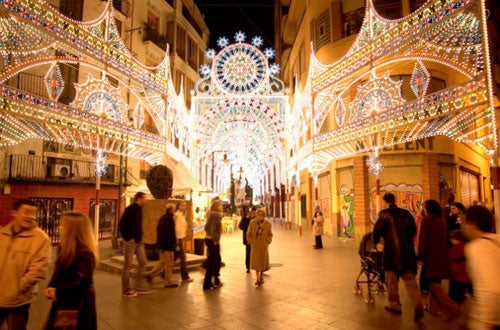Spain cuts speed limit and turns out lights

Spain has seen the future and it is slow, dim and uncomfortable. A swingeing series of energy-saving measures announced by the Spanish government may be a foretaste of the kind of policies which will be forced upon an energy-hungry industrial world in the coming decades.
To protests from motorists and mockery in parts of the press, the Socialist government plans to cut motorway speed limits to 50mph and town speeds to 25mph. New austerity rules will be imposed on the air conditioning and heating of all public buildings. Street-lighting will be cut by half.
Almost 50 million low-energy light bulbs will be handed out by the government in an attempt to drive high-consumption bulbs out of the market in the next four years. The government will also sponsor a project intended to introduce a million electric or hybrid electric-petrol cars on to Spanish roads by 2014.
The sweeping plans, intended to reduce Spain's huge dependency on imported oil by 10 per cent, were mocked by one newspaper as an "operation light bulb" which was doomed to fail. However, the Industry Minister, Miguel Sebastian, adopted the celebrated exhortation to patriotism and self-sacrifice of the US President John F Kennedy when he took office in 1961. It was time, he said, for Spaniards to "ask not what your country can do for you. Ask what you can do for your country."
"Every time we lift our feet off the accelerator, we are improving GDP and employment," Mr Sebastian said. "The era of cheap energy has passed."
The energy shock caused by the boom in oil prices in the past year has hit Spain especially hard. Spain has scant energy resources of its own and is more dependent on fossil fuels for its energy needs – 84 per cent – than any other European Union country.
Mr Sebastian said that Spain had spent €17bn (£13bn) on importing oil in the past 12 months. The country's trade deficit is expected to soar this year by 13 per cent to €42.8bn.
Among the 31 measures announced to parliament on Tuesday night, there were two or three which would – if implemented – radically change the Spanish way of life. The speed limit on dual carriageways would be cut from 100kph to 80kph (50 mph). The urban speed limit would fall to 40kph (25mph).
Despite Spain's baking summers, air conditioning systems in public buildings would be set no lower than 26C. In winter, the heating would be limited to 21C. Hospitals will be exempted, and so will private homes and offices.
The government also plans to remove, or dim, millions of street lights, to reduce their energy consumption by half. Public transport in many cities will operate into the early hours at the weekends to persuade motorists to leave cars at home. All Spanish government vehicles will be expected to cover one fifth of their energy needs with bio-fuels.
But a poll of Spanish motorists by a TV channel found little evidence of the JFK spirit. Manolo of Madrid said: "Tell the minister that things are just fine as they are. We don't want to cut our speed. People would be honking their horns all the time if they had to go that slow."
Join our commenting forum
Join thought-provoking conversations, follow other Independent readers and see their replies
8Comments